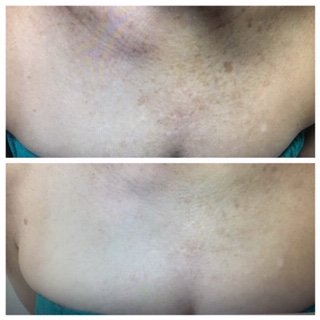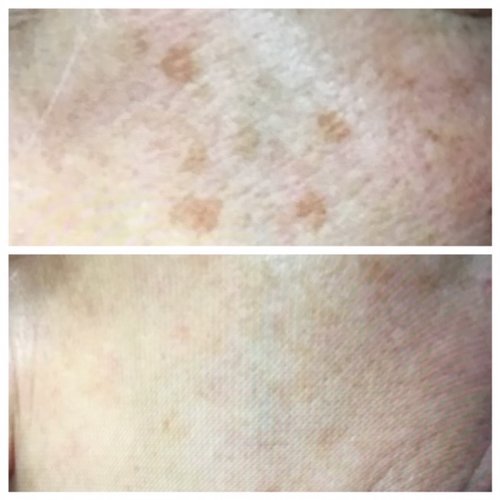IPL Photofacial
Village Dermatology offers IPL at our Memorial and Katy locations. Intense Pulsed Light (IPL) Photofacial is a laser treatment that targets pigment issues, such as brown and red spots, sun damage, and rosacea. The bright light passes through the epidermis, drawing out the pigment producing cells and dispersing the uneven pigment. IPL (Photofacial) can be used on the face, neck, chest, shoulders, back, arms, legs and just about anywhere else. Photofacial is also an effective treatment for broken veins and spider veins.
What does IPL Photofacial Treat?
Brown and Red Spots
Freckles
Sun Damage
Redness
Rosacea (enlarged facial blood vessels)
How does IPL (Photofacial) Work?
IPL (Photofacial) is Intense Pulsed Light that emits multiple wavelengths into the skin and effectively targets pigment producing cells below the surface of the skin. The light energy is converted to heat energy and destroys the hyperactive melanin producing cells in the layers of your skin, eventually dispersing pigmented areas. The spots are pulled to the surface, turning into a coffee-ground-like texture that will flake off revealing beautiful, radiant skin beneath.
How Many IPL (Photofacial) Treatments Do I Need?
For best results, 3-5 treatments are typically recommended, about four weeks apart.
What Treatment Areas are Best?
Face
Neck
Chest
Hands
Shoulders
Legs
Arms
Is It Painful?
IPL (Photofacial) is not necessarily painful, but it can be a little uncomfortable. Patients liken the feeling to a rubber band snapping on their skin. The light from the laser is also quite bright, which may be uncomfortable for some with light sensitivity.
How Long is a Typical Appointment?
The length of treatment is dependent on the number of areas being treated and the number of passes the aesthetician makes on the area. For reference, an IPL (Photofacial) on the face would take about 30 minutes.
How Long Do Results Last?
Photofacial results perpetually improve over time, with best results being seen three months after the last treatment. Sun protection and skin care maintenance are essential to the longevity of the results. Sunburns and over exposure will bring back old spots and freckles. Any dullness will return if proper exfoliation during daily routines are neglected. A new series of treatments are recommended every year for optimal results.
Contraindications, Risks, Common Concerns:
As with any aesthetic treatment, there are risks. However, this is why you should only trust an experienced and licensed aesthetician. Because the light rays are attracted to pigment, darker skin tones can actually become discolored and melasma patches can become darker. Those who have been on a strong antibiotic or Accutane should not receive treatment until 3-6 months after the last treatment. We do not recommend this treatment for patients with a higher Fitzpatrick score.


